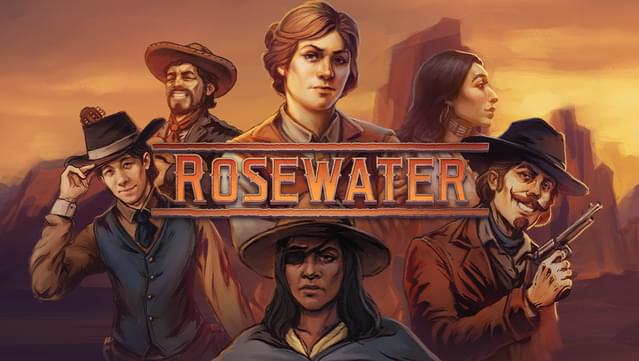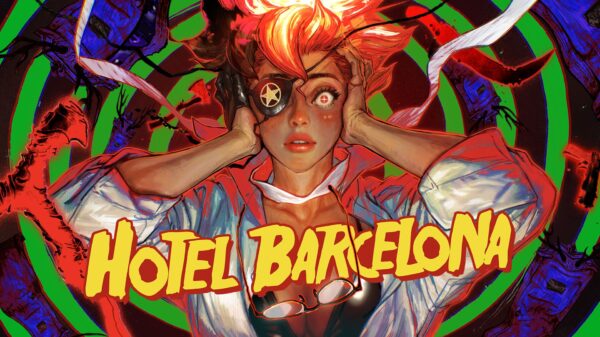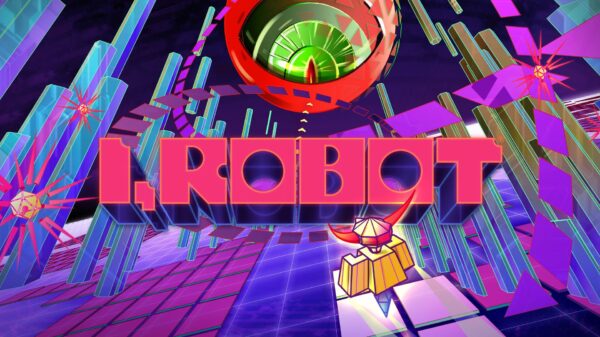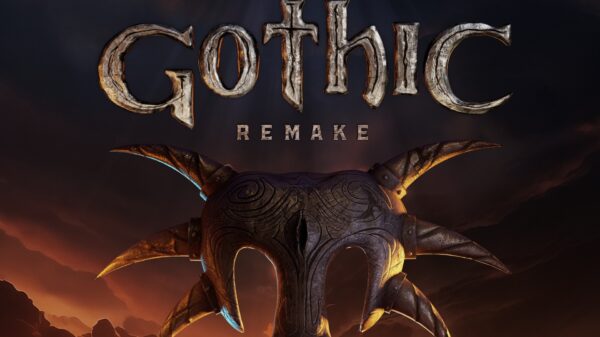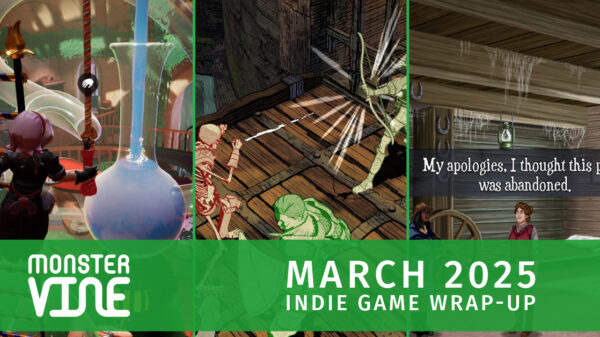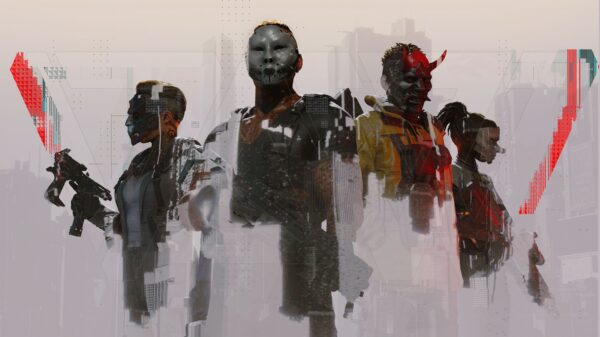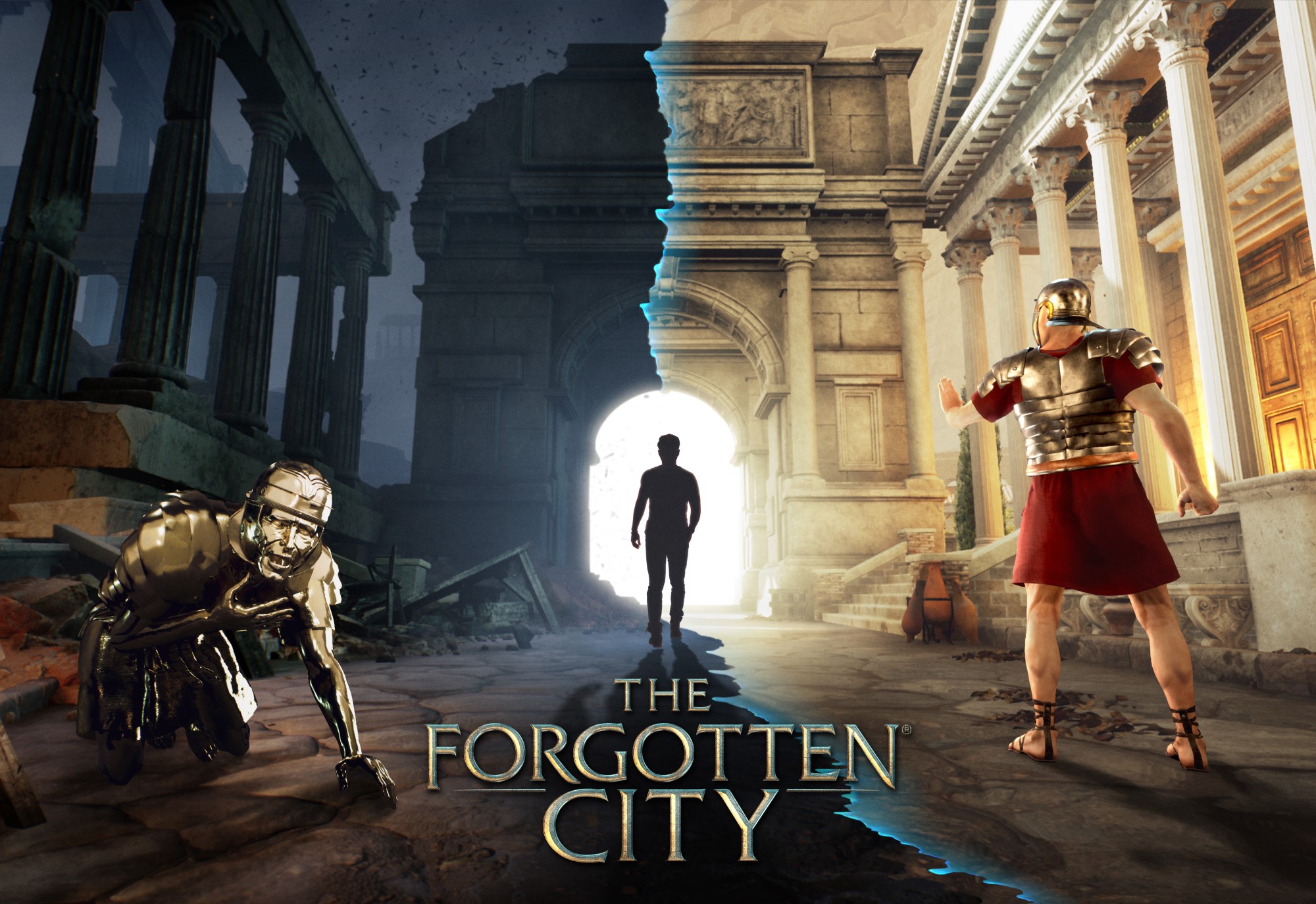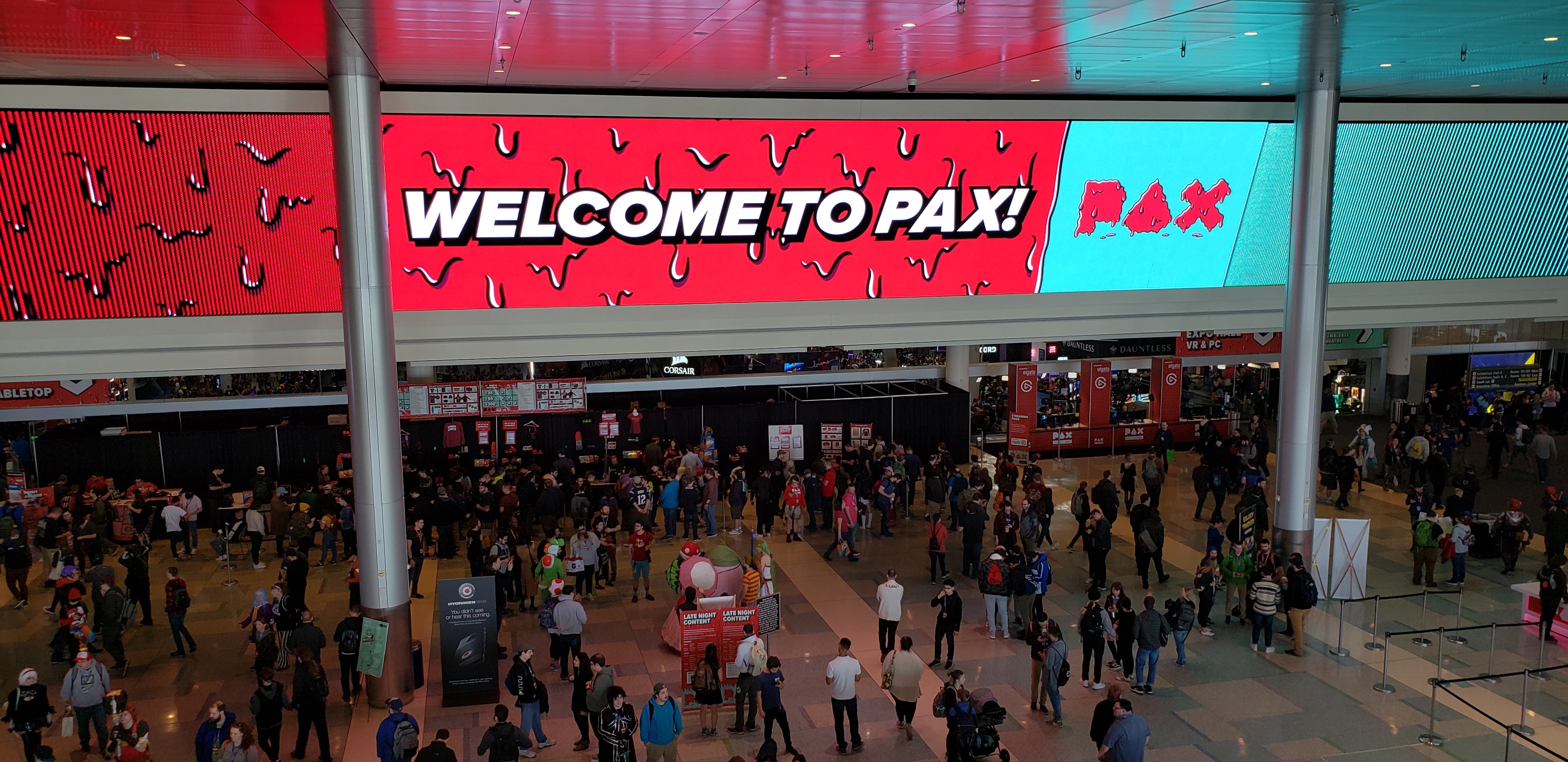It’s not very often that a game mod gets given new life through the full production of a standalone game release, but that’s exactly the case with The Forgotten City.
The Forgotten City
Developer: Modern Storyteller
Price: $
Platform: PC, PS5, PS4, Xbox One, Xbox Series X
MonsterVine was supplied with a PC code for review
Released as a Skyrim mod half a dozen years ago, it got enough praise and awards for its developer to forge forward with reimagining the game from the ground up as its own thing. The core concept of the game remains the same in that you discover an ancient Roman city where everyone is beholden to a mysterious “Golden Rule” that nobody quite understands how it works but they do know what the consequence of breaking it is: death. You find these ruins in present-day and are flung back in time and told that somebody is about to break the golden rule, causing the death of everyone in the city, and you need to find out who it is and stop them. Failing to prevent the rule from breaking triggers a perfectly dramatic horror show as the golden statues that litter the city come to life and begin turning the denizens into statues themselves. Assuming you can make it back to the portal without dying, you’ll reset the timeline and have another go at solving the mystery.
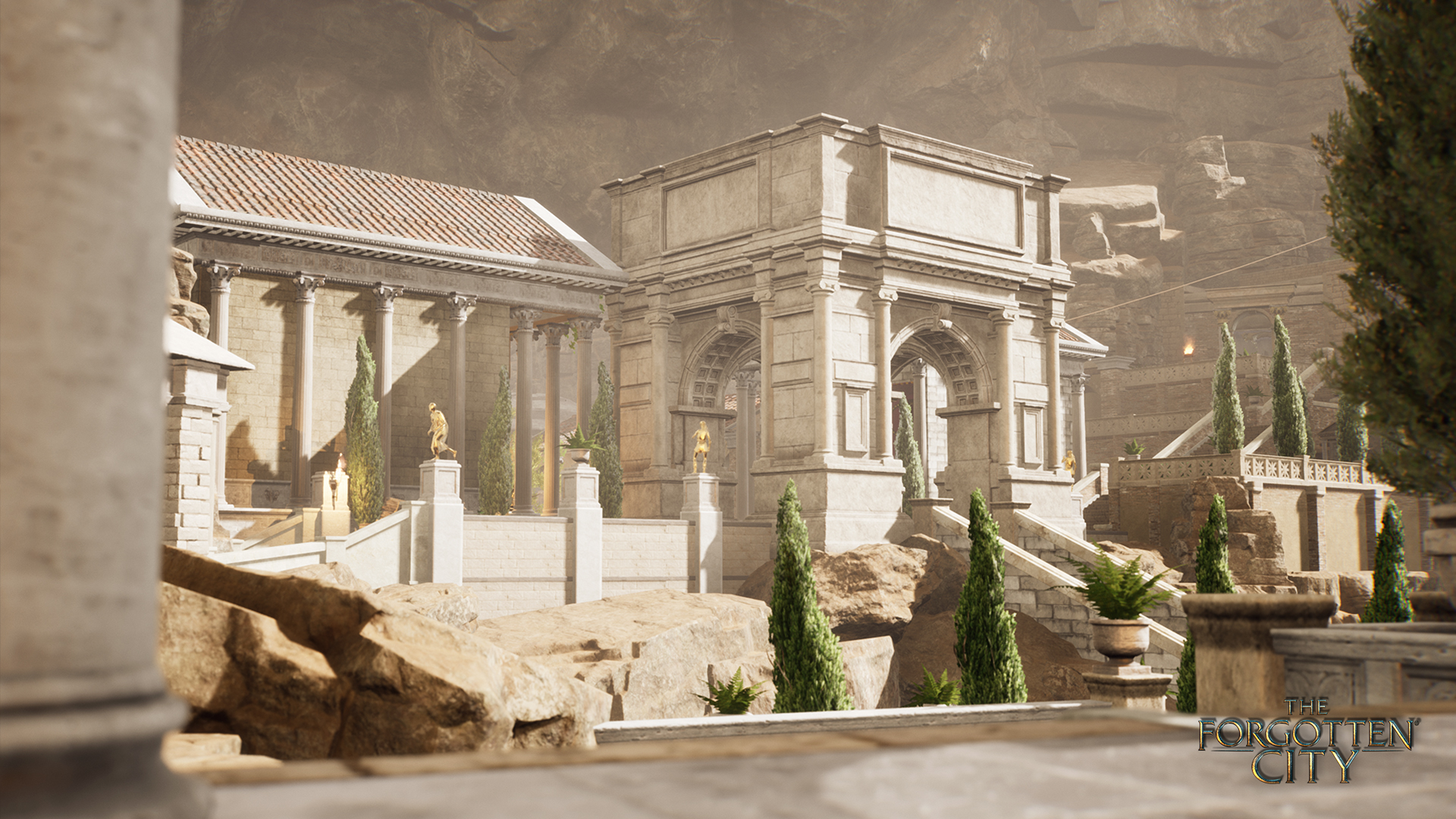
It’s an interesting setup in that you have this thought exercise of knowing that this “rule” might exist since nobody actually knows for sure it’s real, but they do know that sinning will trigger it: if you don’t live in sin then you’re fine, but you’re also being forced to live as a “good person” under the threat of a gun. Some believe in the rule, some don’t think it exists, and others say what’s the point of living if you’re living as a prisoner. There’s a decent bit to chew on and each of the characters has their own view on things that’s interesting to listen to. Very rarely does a game like this actually have me wanting to run through every character’s dialog options, and The Forgotten City succeeds in this by having some pretty well-realized characters (even if they’re not particularly deep). The story itself, while revealing itself to be fairly surface level and done to death when it all “clicks” still somehow manages to stick the landing purely because of how well the characters are written. Was my mind blown when I reached the climax? Not even remotely close, but it was still a fun ride to get there.
The main “loop” of the game is exploring the city, questioning the locals, and trying to figure out who’s the one responsible for dooming the city by breaking the golden rule and using the time portal to loop back to the beginning to do it all again. Without getting into too spoilery areas, an early quest has you stealing medicine for a dying patient which (since theft is sin) causes the golden rule to be broken and a run to the portal required. You’ll then realize anything you have on your person when you loop stays which means you no longer need to steal that same medicine as it’s now permanently with you.
This is how the game, in concept, expects you to solve its mystery as there are moments where you can tell that path will lead to solving a questline, but it’ll require breaking the golden rule and resetting the timeline. The mystery itself is, however, somewhat deflating in that all that’s involved with doing so is simply exhausting everyone’s dialog options and being led to the game’s end. Do you need to loop through time to get to the game’s end? Yes, but it’s less “cleverly exploit the timeline” like the game pitches and more “this is a forced loop that’s part of the story to reach the true ending”. The game kind of handholds you to the end if you let it, which is odd since it leads you to believe you can do things like falsely accuse others of being the culprit but not once was I able to ever do that. Not that you’d ever want to however since it’d just cause a loop and mean you wasted time just to see a potentially funny interaction.
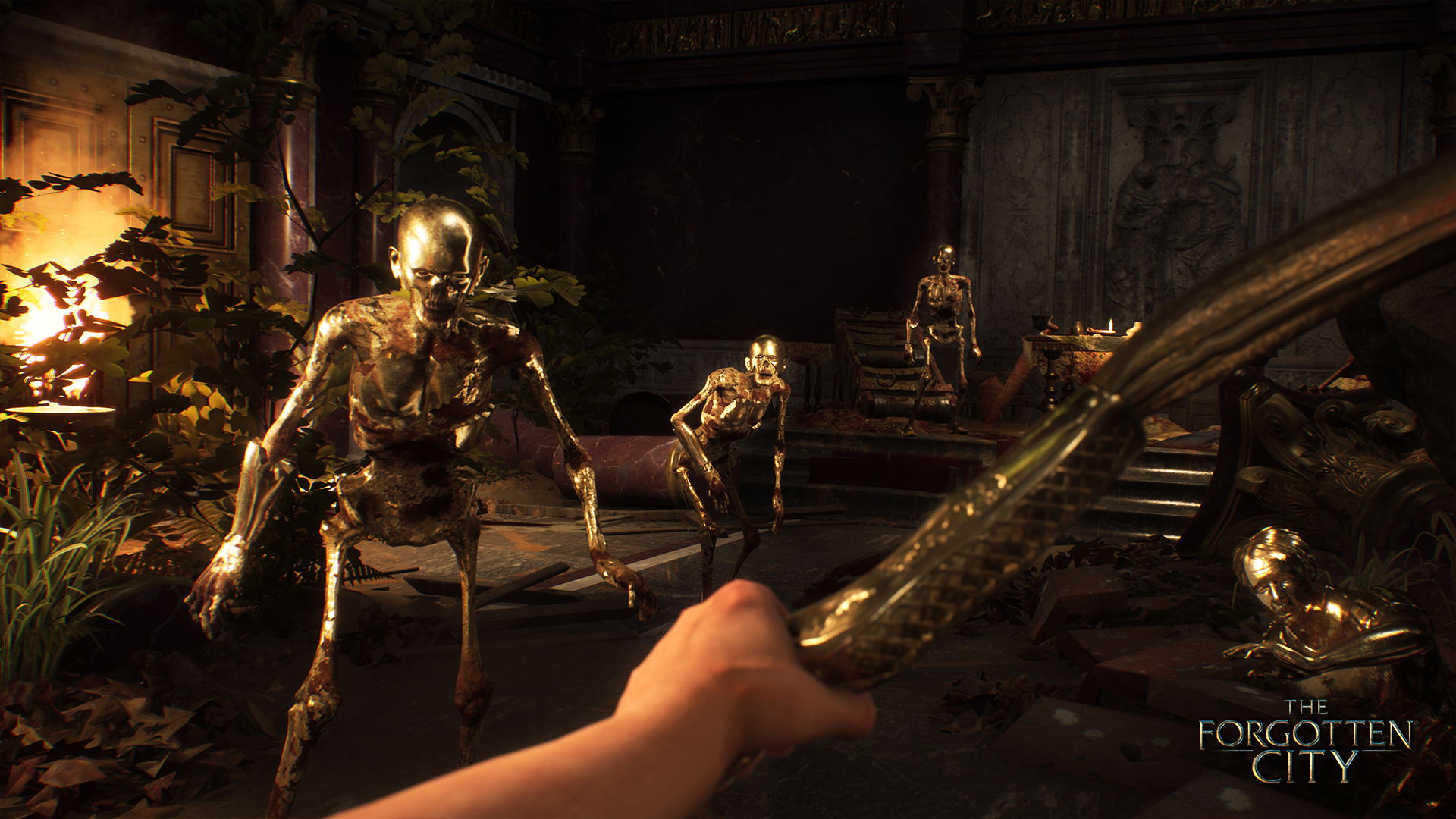
This is all really fun in theory, but in practice, I didn’t quite experience the game how I thought I was going to. I looped through the game about four times, and none through any fault of my own they were all forced story moments. After my first loop, I was easily able to figure out and finish everyone’s quests in the next loop and reach the first of four endings which then caused a loop and I reached the canon ending in my final loop. It’s immediately clear what actions will force a loop so it’s pretty easy to avoid doing those, especially since it’s not in your best interest to have to be constantly resetting the timeline and wasting time redoing what you already did. There’s maybe a quest or two (that I noticed) that have completion methods linked to looping the timeline which would be an actual benefit (like stealing a ton of money to help someone with money problems), but you don’t have to do it that way as evident from my playthrough. Where I’m getting at is that in a game about solving a mystery, I wish the time looping mechanic had a bit more of a proactive element in solving said mystery.
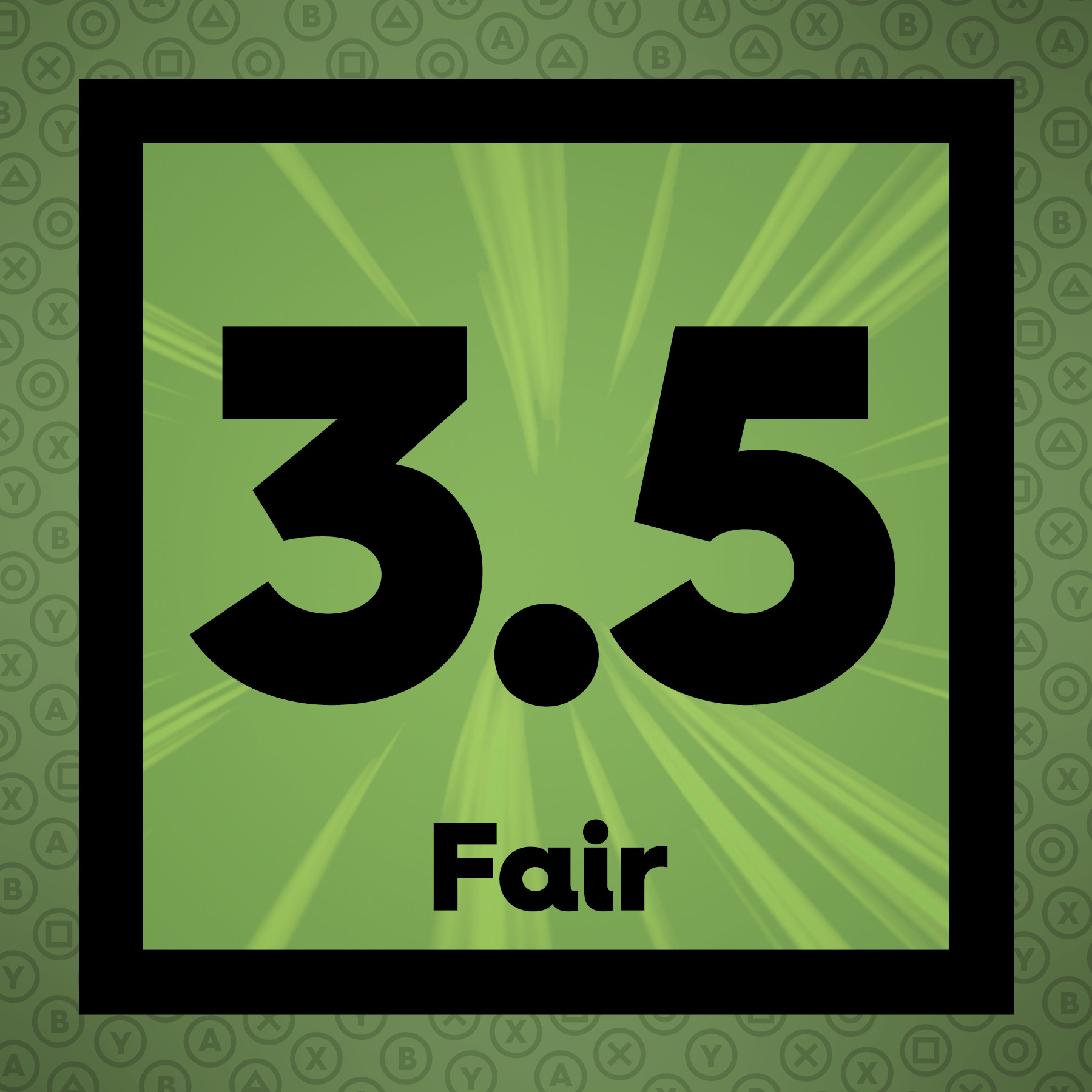 The Final Word
The Final Word
I burned through The Forgotten City in a single session, fully intrigued by the game’s world but I just wish the game’s mechanics had a bigger influence over the story it was trying to tell.
– MonsterVine Rating: 3.5 out of 5 – Fair





